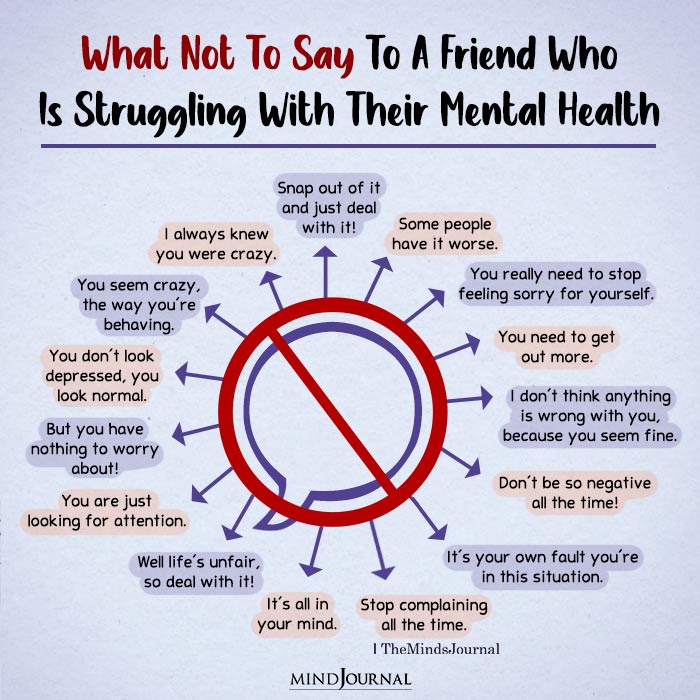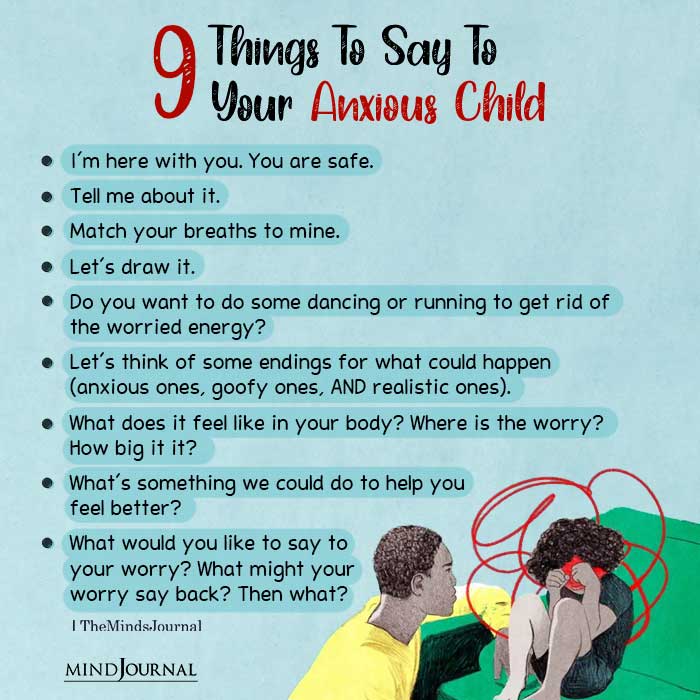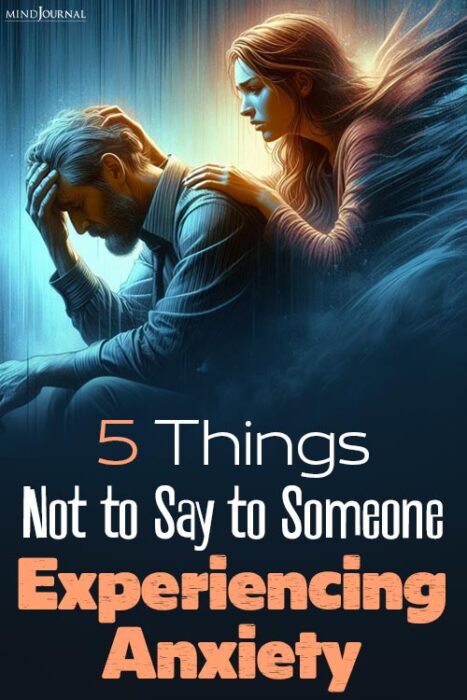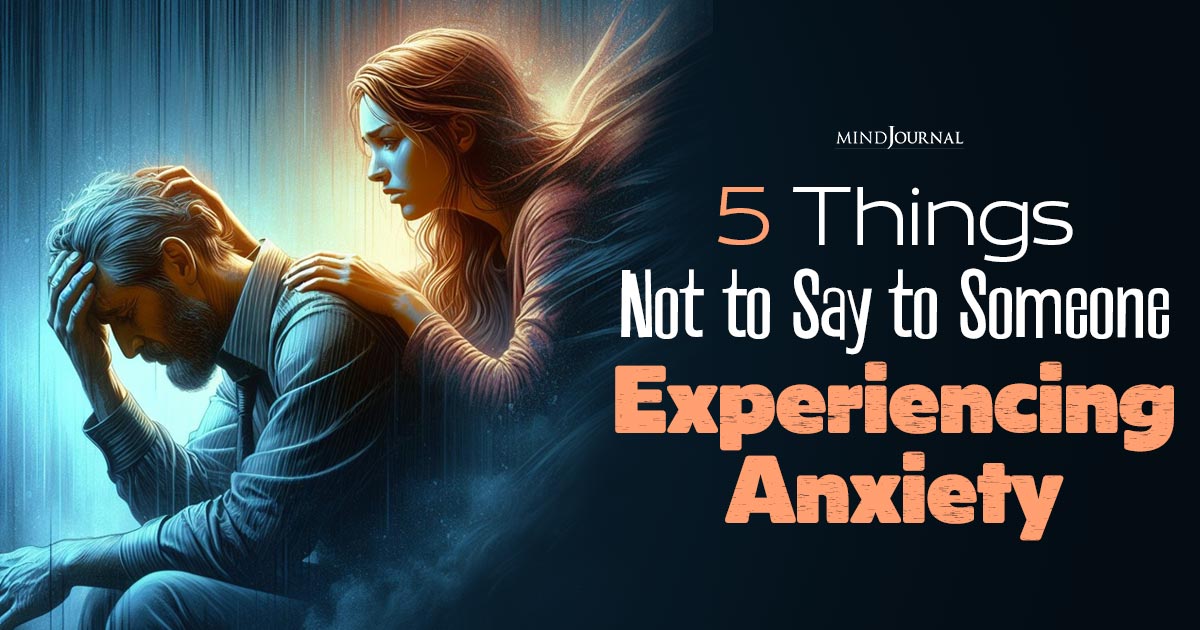What not to say to someone with anxiety? When you are dealing with an anxious person, you need to show them empathy and open-mindedness. Encouraging someone with anxiety is one of the best things you can do for them. On the other hand, there are certain things you should not say if you are thinking about how to help someone with anxiety.
KEY POINTS
- Telling someone with anxiety to “get it together” or that they’ll figure it out is often unhelpful.
- Sometimes an anxious person doesn’t want to hear that they are fine.
- An expression of empathy for someone’s challenges can mean a lot.
Anxiety is, in many ways, a psychological expression of pain. It lets us know that something is wrong in a way that is impossible to ignore. It hurts to see someone hurt. Just like when we see someone in physical pain and when we see someone troubled by worry, it’s natural to wish to comfort them.
Yet, even well-meaning attempts to give reassurance can be problematic. Here are five to avoid, and five alternatives.
Related: How To Date Someone With Anxiety
What Not To Say To Someone With Anxiety? 5 Things You Should Avoid Saying
1. “We’ll cross that bridge when we get there.”
If someone is telling you about a fear for the future, they are already “there” in their mind. In ways, anxiety has achieved time travel. You both may know that the imagined dystopian picture of what’s to come is not helpful. Still, it’s difficult to paint over.
Instead, try,
“Let’s make a plan.”
While we can only see so far down the road, creating a plan for potential obstacles can help. If someone is sharing a range of worries with you, offering some assistance with this might be appreciated.

2. “This doesn’t help anyone.”
Your friend or family member is panicking. Maybe they are crying. Telling them to get it together, that this doesn’t help anyone, is not kind. Of course, they would rather not feel this way. That’s not the reality of the situation.
Instead, try,
“I am with you.”
Words like this show someone that they are not alone. This means a lot.
3. “You’re fine.”
It’s nice when we can offer someone genuine reassurance. For example, a medical test showing someone in the clear. In most situations though, we can’t. Your friend is not “fine,” they are anxious.
Instead, try,
“You must be overwhelmed.”
Sometimes an anxious person doesn’t need to hear that they are okay, but to know that you can see that they are in a rough place. Statements like this are validating.
Related: 11 Things People With Anxiety Want You To Know
4. “If you wouldn’t have _ you wouldn’t be in this situation.”
Unless you can offer someone a time machine, this is not productive. Your words also may not be true. We don’t know what would have happened in a counterfactual reality where we had made different choices.
Instead, try,
“No wonder you’re stressed.”
An expression of empathy for where someone is can mean a lot. It will go a long way further than chastising them for how they got there.

5. “You’ll figure it out.”
You might mean this well, perhaps by showing confidence in their abilities. Yet, when someone is reaching out to you for help, comments like this can feel like being dropped down into the dust.
Instead, try,
“Is there anything I can do to help?”
Sometimes, there are practical ways that we can show up for each other. Even the question offers emotional support. If what your friend asks is something you are not comfortable with, or otherwise can’t do, you can say ‘no’. Still, showing you want to give a hand is supportive.
Written By Jennifer Gerlach
Originally Appeared On Psychology Today









Leave a Reply
You must be logged in to post a comment.